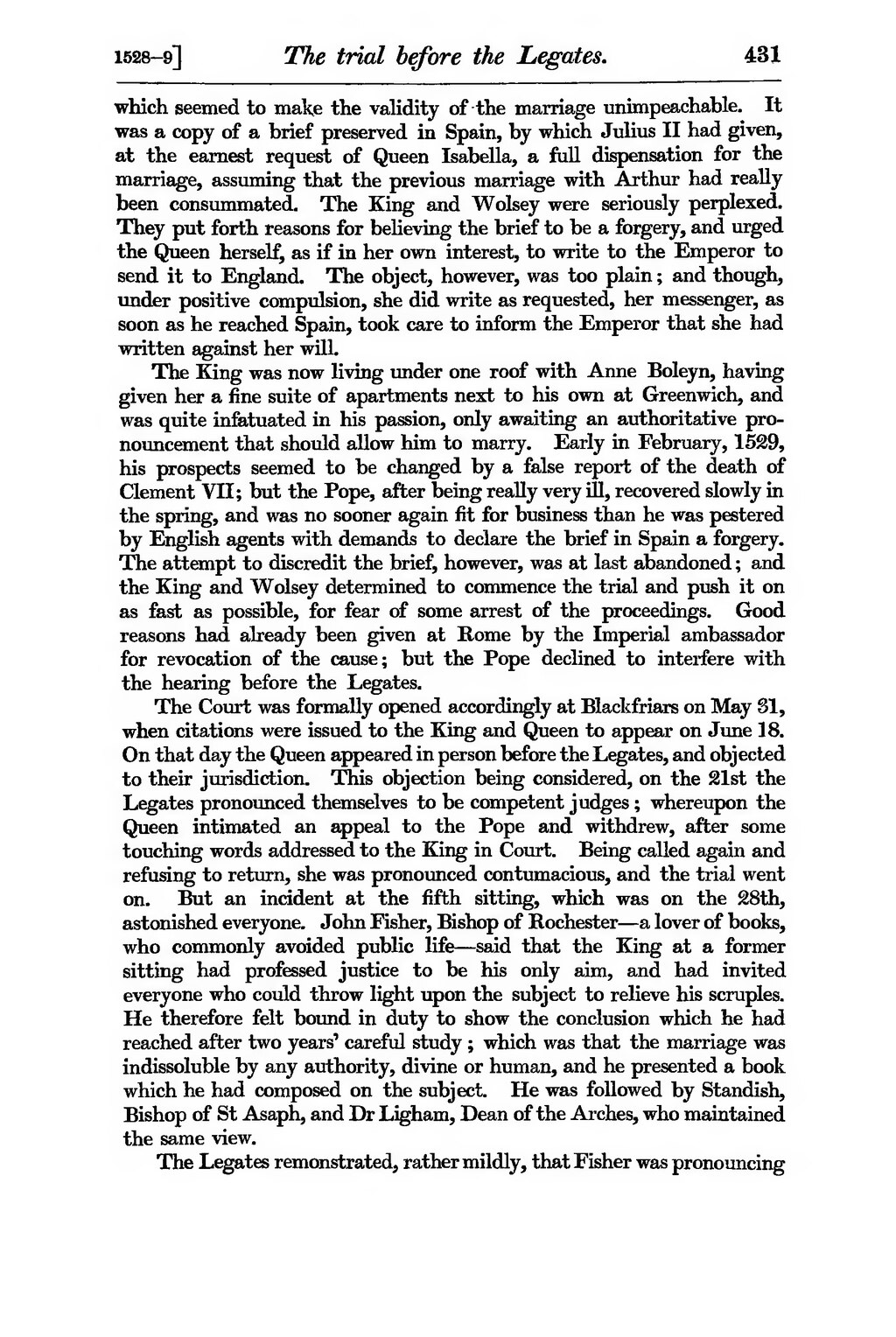which seemed to make the validity of the marriage unimpeachable. It was a copy of a brief preserved in Spain, by which Julius II had given, at the earnest request of Queen Isabella, a full dispensation for the marriage, assuming that the previous marriage with Arthur had really been consummated. The King and Wolsey were seriously perplexed. They put forth reasons for believing the brief to be a forgery, and urged the Queen herself, as if in her own interest, to write to the Emperor to send it to England. The object, however, was too plain; and though, under positive compulsion, she did write as requested, her messenger, as soon as he reached Spain, took care to inform the Emperor that she had written against her will.
The King was now living under one roof with Anne Boleyn, having given her a fine suite of apartments next to his own at Greenwich, and was quite infatuated in his passion, only awaiting an authoritative pronouncement that should allow him to marry. Early in February, 1529, his prospects seemed to be changed by a false report of the death of Clement VII; but the Pope, after being really very ill, recovered slowly in the spring, and was no sooner again fit for business than he was pestered by English agents with demands to declare the brief in Spain a forgery. The attempt to discredit the brief, however, was at last abandoned; and the King and Wolsey determined to commence the trial and push it on as fast as possible, for fear of some arrest of the proceedings. Good reasons had already been given at Rome by the Imperial ambassador for revocation of the cause; but the Pope declined to interfere with the hearing before the Legates.
The Court was formally opened accordingly at Blackfriars on May 31, when citations were issued to the King and Queen to appear on June 18. On that day the Queen appeared in person before the Legates, and objected to their jurisdiction. This objection being considered, on the 21st the Legates pronounced themselves to be competent judges; whereupon the Queen intimated an appeal to the Pope and withdrew, after some touching words addressed to the King in Court. Being called again and refusing to return, she was pronounced contumacious, and the trial went on. But an incident at the fifth sitting, which was on the 28th, astonished everyone. John Fisher, Bishop of Rochester-a lover of books, who commonly avoided public life-said that the King at a former sitting had professed justice to be his only aim, and had invited everyone who could throw light upon the subject to relieve his scruples. He therefore felt bound in duty to show the conclusion which he had reached after two years' careful study; which was that the marriage was indissoluble by any authority, divine or human, and he presented a book which he had composed on the subject. He was followed by Standish, Bishop of St Asaph, and Dr Ligham, Dean of the Arches, who maintained the same view.
The Legates remonstrated, rather mildly, that Fisher was pronouncing
